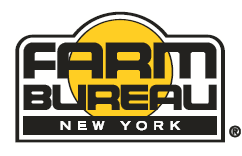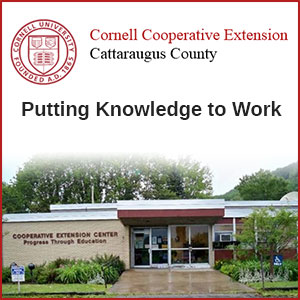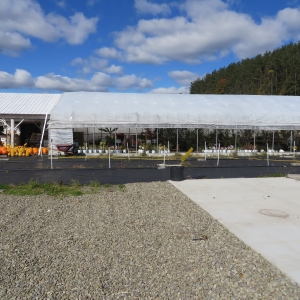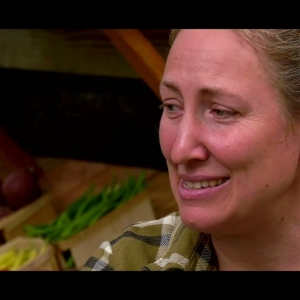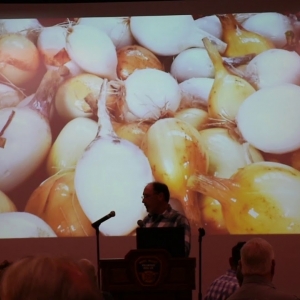Other Ag News:
(Washington, D.C., January 21, 2026) – Today, U.S. Secretary of Agriculture Brooke L. Rollins announced the launch of the New World Screwworm (NWS) Grand Challenge. This funding opportunity marks a pivotal step in USDA’s comprehensive strategy to combat NWS and prevent its northward spread.
(Washington, D.C., January 20, 2026) – U.S. Secretary of Agriculture Brooke L. Rollins today signed the official commissions of all Senate-confirmed officials serving at the U.S. Department of Agriculture (USDA), marking one year since the start of President Trump’s historic second term in office.
(Washington, D.C., January 20, 2026) – U.S. Secretary of Agriculture Brooke L. Rollins published an opinion piece in Fox News highlighting how President Trump is delivering on his promise to put the welfare of American farmers and children first by signing the Whole Milk for Healthy Kids Act.
(Washington, D.C., January 19, 2026) – U.S. Department of Agriculture (USDA) Deputy Secretary Stephen Vaden today unveiled the Lender Lens on the Rural Data Gateway. This dashboard will make Rural Development’s entire commercial guaranteed loan portfolio available to the public, guaranteed borrowers and commercial lending stakeholders.
WASHINGTON, DC — January 16, 2026 — The U.S. Department of Agriculture (USDA) is now accepting applications for the USDA 1890 National Scholars Program, which aims to encourage students at the Congressionally created 1890 land-grant universities to pursue careers in food, agriculture, and natural resource sciences. The application deadline is March 8, 2026.
FOR IMMEDIATE RELEASE
Contact: Laura Zaks
National Sustainable Agriculture Coalition
press@sustainableagriculture.net
Tel. 347.563.6408
Washington, DC, January 15, 2026 – Today, the National Sustainable Agriculture Coalition (NSAC) issued the following comment in response to the House Agriculture Committee Minority’s unveiling of a farm assistance framework, attributable to Mike Lavender, NSAC Policy Director.
“The past year has brought unprecedented uncertainty, pushing countless farmers and ranchers to the brink. The Farm and Family Relief Act gets the urgency of this moment right – robust financial relief is long overdue. NSAC urges Congressional leaders to build on this framework toward an outcome that delivers for farmers and families. This includes making sure any financial assistance is available to all farmers who need it, keeping farmers on the land by providing additional loan support, preventing foreclosures, and offering broad eligibility to actively engaged farmers. Still, this immediate financial relief is not enough to break the cycle: we also need investments that build reliable domestic markets and expand access to conservation practices that help farmers reduce persistently high input costs.”
In November 2025, NSAC published Keeping Farmers on the Land, an in-depth analysis of the current challenges facing farmers and ranchers and the solutions needed to support them in the immediate and long term. NSAC continues to advocate for Congressional farm financial assistance that includes these comprehensive solutions.
###
About the National Sustainable Agriculture Coalition (NSAC)The National Sustainable Agriculture Coalition is a grassroots alliance that advocates for federal policy reform supporting the long-term social, economic, and environmental sustainability of agriculture, natural resources, and rural communities.
Learn more: https://sustainableagriculture.net/
The post Comment: Farm Assistance Framework Signals Need and Opportunity to Build More Robust Support appeared first on National Sustainable Agriculture Coalition.
(Washington, D.C., January 15, 2026) – U.S. Secretary of Agriculture Brooke L. Rollins published an opinion piece in The Hill highlighting how the new Dietary Guidelines for Americans, 2025-2030, are prioritizing real food while also offering a blueprint for a healthy diet that is within reach for all households, regardless of circumstance.
If you’re selling 25 million trees, New York State is looking to buy. In 2024, Governor Kathy Hochul began an ambitious reforestation goal, aiming to plant 25 million new trees in the state before 2033. While the effort has been supported by policymakers, conservationists, researchers, and agriculturalists, a key issue remained — what kind of trees should NYS plant, and where should they come from? Small farms and nurseries across the northeast are getting involved, promoting robust native species.
On this week’s episode of Small Farms Radio, our Agroforestry and Mushroom specialist Connor Youngerman visited Jesse Marksohn at Yellowbud Farm tree nursery. They discussed how farms like Yellowbud can work to combat climate change and revitalize traditional foods from native species, one tree at a time.
Small Farms Radio · Episode 8 – The power of trees: Yellowbud FarmYoungerman describes New York State’s investment in forests like paying for a powerful machine: it eats up carbon, spits out food and building materials for humans to use, and simultaneously provides a home to wildlife that bolster the state’s biodiversity. Yellowbud’s wholesale seedling operation mimics this natural system, replacing synthetic fertilizers with Rich Earth Institute’s pasteurized urine, and a complex irrigation system with strategic mulching.
Marksohn believes that as New York State invests in its new forest “machine,” native species must be centered and further developed. Yellowbud is part of this effort to improve native cultivars; Marksohn’s team does archival research to identify successful legacy plantings, and connects with producers across the region to pilot new cultivars, measuring their performance for years before they begin wholesale production. The cultivars they develop are more resilient and have higher yields than seedlings imported from other regions, giving them an economic advantage in the short term but also ensuring longevity.
Beyond their importance in mitigating climate change, Marksohn believes trees can be “transformative” for a diverse range of agricultural operations across the region. For livestock producers, trees can offer shade and fodder, reducing heat stress and providing a resilient, perennial feed source. For vegetable operations, trees give natural patchy shade in the hottest months and protect crops from wind. Across the board, trees create habitat for beneficial biota, increasing biodiversity and potentially reducing pest pressure. For any operation, Marksohn recommends starting small and learning the basics of forestry.
Other than the environmental and economic benefits, Yellowbud also works to revitalize the cultural importance of foods from native trees. While hickory and oak trees are valued today for their wood, they historically were an important source of food. Along with the many environmental benefits of native tree production, products like hickory oil and acorn flour can be nutritionally and culinarily superior to alternatives like olive oil. Marksohn shares that hickory nuts are simple to process, and the resulting oil is higher in oleic acid (an omega-9 fatty acid) than olive oil.
With economic, environmental, and dietary advantages, the integration of native trees can be a triple-win for NYS. Youngerman believes that as New York builds its 25-million-tree forest machine, it’s more than worth it to invest in native species and the small farmers who produce them. Through partnership with conservationists and producers like Marksohn, New York can create a resilient tree landscape that will reap benefits for generations to come.
The post Small Farms Radio Shines a Spotlight on the Power of Trees appeared first on Cornell Small Farms.
(Washington, D.C., January 14, 2026) — Today, President Donald J. Trump signed the Whole Milk for Healthy Kids Act in the Oval Office alongside U.S. Secretary of Agriculture Brooke L. Rollins, U.S. Health and Human Services Secretary Robert F.
WASHINGTON, Jan. 14, 2026 - The United States Department of Agriculture (USDA) announced today that registration is now open for the 102nd Agricultural Outlook Forum. The event will be held at the Crystal City Gateway Marriott on Feb. 19-20, 2026, and all Forum sessions will be livestreamed on a virtual platform.
Pages
Signup for the Ag Newsletter
Get the freshest farm news, events and updates from in and around Cattaraugus County, NY at least once a month! Go signup!
Other ways to stay connected:
Get Involved in Farming
Resources for Starting a Farm in Cattaraugus County
Profile of Cattaraugus County soils
Agriculture Career Exploration
Questions about farming? Find out Who to Call

